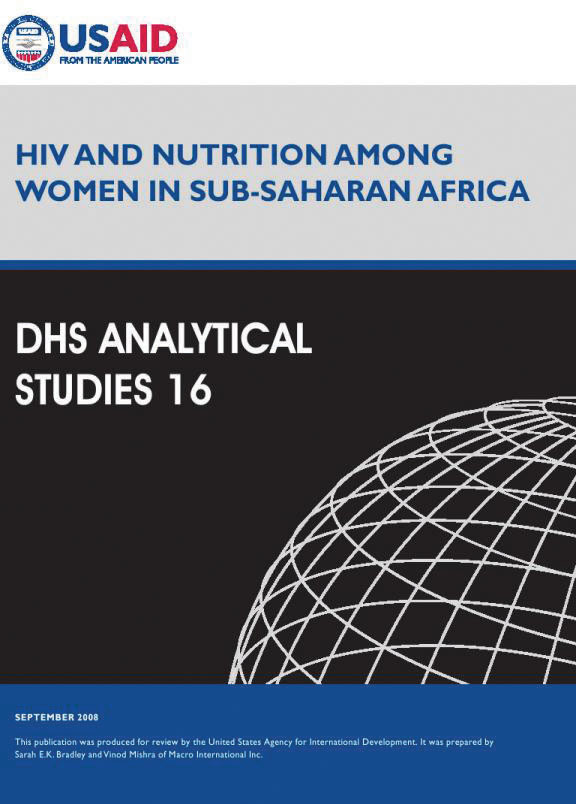
Abstract:
In the absence of antiretroviral therapy
(ART), HIV-positive people will lose weight
and eventually become wasted or severely
underweight. However, levels of obesity and
overweight seem to be increasing in several
sub-Saharan African countries severely
impacted by HIV and with little or no ART
available. In many of these countries, HIV
prevalence is higher among overweight people
than those of normal or below-normal body
weight. To better understand this apparent
anomaly, this study investigates the
relationship between HIV, body mass index
(BMI), and hemoglobin levels (biomarker for
anemia) among adult women in sub-Saharan
Africa. The study also investigates the
relationship between HIV, women’s nutritional
status, and their breastfeeding mode
(exclusive, mixed, or none). In pooled
analysis, HIV-positive status is
significantly positively associated with
being overweight, and is significantly
negatively associated with being underweight.
After controlling for wealth and other socio-
demographic characteristics, however, the
relationship reverses direction, and HIV-
positive status becomes significantly
positively associated with being underweight.
HIV-positive status is significantly
negatively associated with hemoglobin
concentration, and the relationship
grows stronger when background
characteristics and BMI are controlled for.
There does not appear to be any negative
impact of breastfeeding on the nutritional
status of HIV-positive mothers compared with
non-breastfeeding HIV-negative mothers. HIV-
positive women who exclusively breastfeed
their infants have slightly higher hemoglobin
concentrations than HIV-negative women who do
not breastfeed, after controlling for BMI and
background characteristics.
